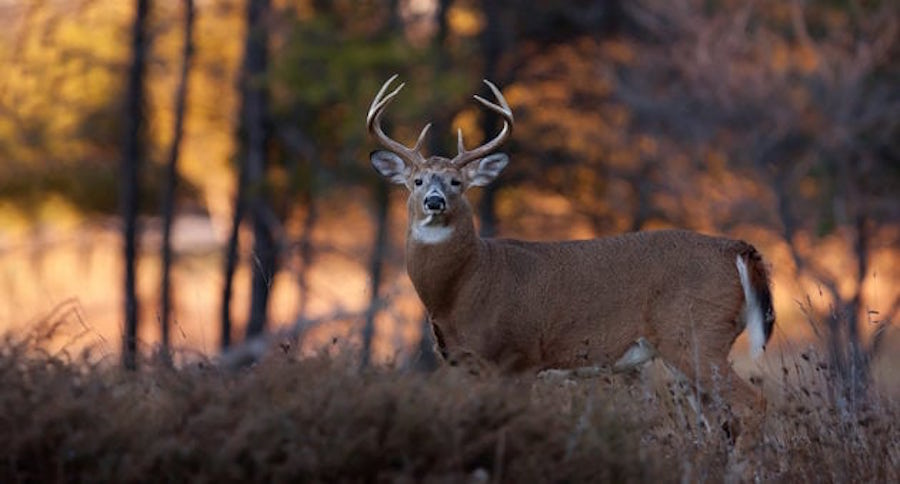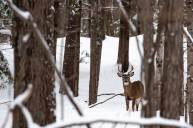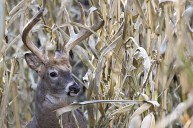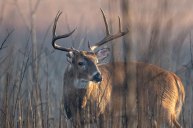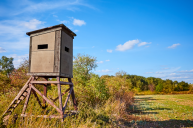Making your deer property better comes in many forms, but a simple can of marking paint is one of the easiest.
When it comes to deer hunting and deer management, we can become a little crazy sometimes. For those of us lucky enough to own deer hunting property, it can be an exhausting thing to try and put all of the time and effort into it that you'd like, but it's a labor of love.
From creating food plots to discovering or creating bedding areas, your favorite piece of land in the world can take up your time and your money. Deer hunters are a special breed and put in a lot of work to create hunting opportunities for themselves, but it doesn't always have to be brow-dripping work to do it.
Included herein are five simple things that you can do—on one outing—to help you out when the time is right to hunt. The key to great hunting is usually trail camera location, travel corridors and wind direction, but knowing your real estate can keep you from being distracted at the worst possible moment.
1. Signage doll-up
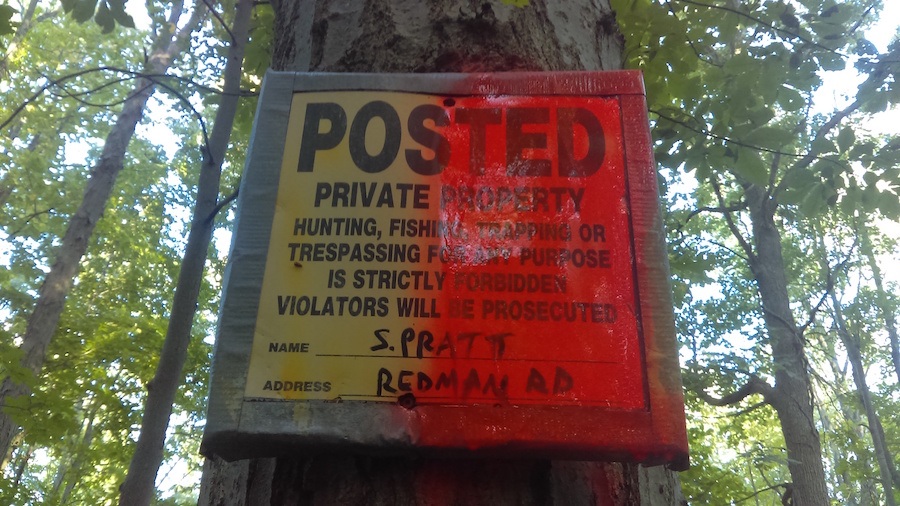
Craig Raleigh
In many states, simply painting trees and fence posts with purple paint is the same as a "No Trespassing" or a "Posted" sign. Those of us who need to mark our territory with the latter have known for a long time that they get dull and wear out. Even if your signs are already blaze orange, a new coat of paint over the top will make them glow again from across the woods without covering up the wording. You should still take a black marker with you to update names and dates that've worn out.
2. Hit the back side of those trees, too
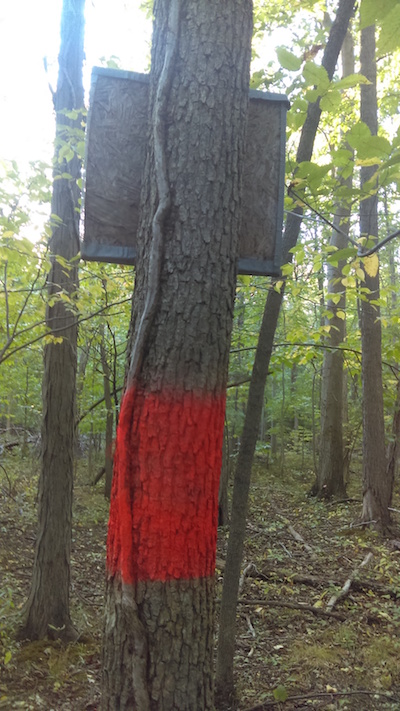
Craig Raleigh
As well as we know our properties, there are still times we're not completely sure how far away the border is, or just exactly where it is. I've found that in mature timber, it can be difficult to see the perimeter from through the hardwoods or the thickness of the security cover. Having fresh blaze orange on the backside of the trees that are holding your signs lets you see exactly where your land ends since it sticks out so well.
3. Know your corners
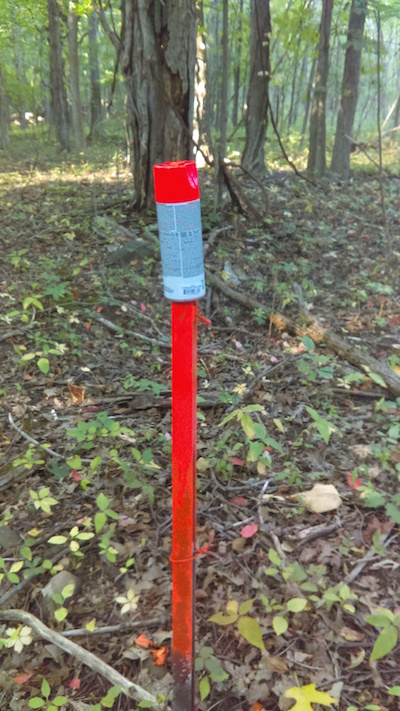
Craig Raleigh
This is important for your neighbors, too. It's one thing to understand the borders of your land, but where two or more whitetail properties come together can be hard to gauge. The picture featured here is the crux of three tracts of land that happens to be the original stake used to survey the property. This gives you multiple points on the compass and shows everybody the obvious corner from a fair distance.
4. As a distance marker
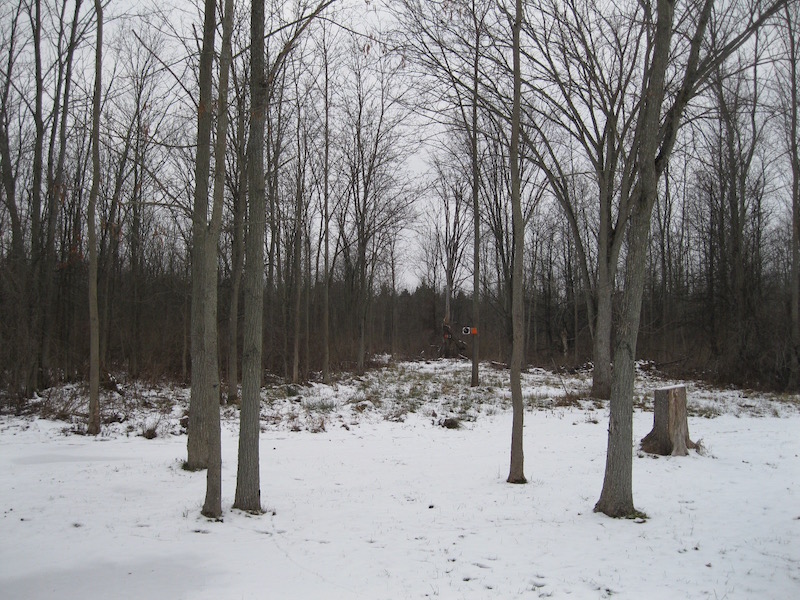
Craig Raleigh
Shown here is an up-close view of a 50- and a 100-yard target range. Before the season starts, it's easy to dot a few trees to give you a reference and a heads-up, as getting your rangefinder out isn't always an option if deer get close before you're ready. It isn't as important during gun season as it is during bow season, but it'll give you a reminder and also help you to see if the deer is traveling in front of the mark or beyond it.
5. Trail marker
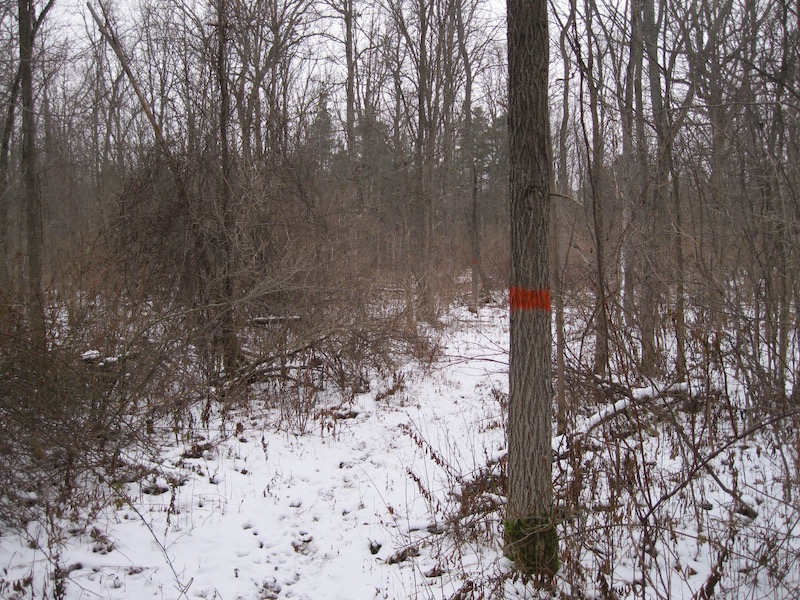
Craig Raleigh
This is probably the most obvious use for a can of marking paint, but since your out there, why not? Sometimes where multiple trails come together, and in the dark, a simple spot of paint on a tree can keep you from taking a wrong turn. At other points, it'll mark places where you ultimately go off the trail and into the cover, especially if the trail leads to other stands.
Eventually, deer habitat and habitat improvements are the final say in seeing big deer on even a small property. From Illinois to Iowa, and from Texas to Georgia, spotting mature bucks is the end game for all of us and the reason why we subscribe to the QDMA.
Check your local regulations before using this method on public land, but it wouldn't be the first time that I've seen painted trees on a public hunting area. This is something to think about after the season is over or well before it starts. Once the hunting pressure is on, you don't want to think about anything else except getting up and getting in!
Looking for a little more? Follow my webpage, or on Facebook and Twitter.
NEXT: THE FIVE 10S OF HUNTING YOU MAY HAVE FORGOTTEN ABOUT
WATCH
https://rumble.com/embed/u7gve.v3tohd/
